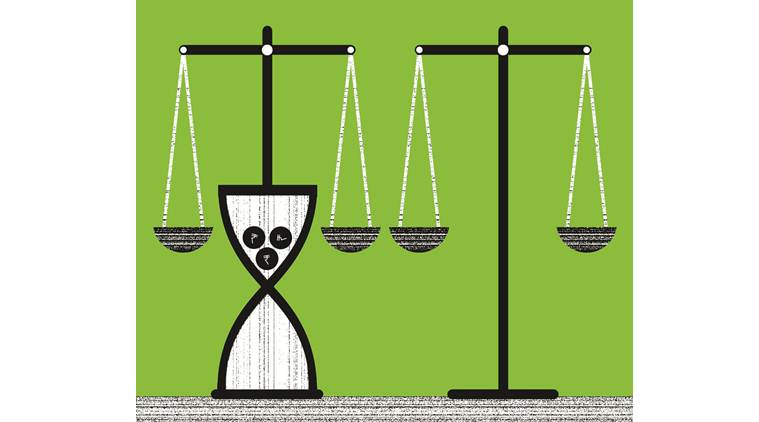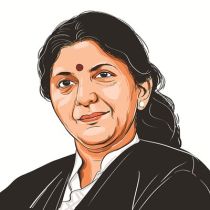A parallel injustice system
Sharia courts undermine constitutional principles, rule of law

The authors claim that Sharia courts are mere arbitration centres and not a parallel judicial system. (Illustration: CR Sasikumar)
I was shocked to read the article titled ‘Justice more accessible’ (IE, July 16) by Faizan Mustafa and Mahendra Shukla. The article has advocated the concept of Sharia courts through a series of false and baseless arguments.
The authors claim that Sharia courts are mere arbitration centres and not a parallel judicial system. The question which I would like to ask here is: If they are mere arbitration/mediation centres, why not call them Sharia counselling or mediation centres?
Mediation and arbitration centres are very different from Sharia courts. In the case of arbitration/mediation, an issue can be referred only when both the parties agree to it and choose their own counsellors. They don’t have judges(qazis) but counsellors who settle the disputes by consulting both the parties.
The second argument given by the authors is that Sharia courts are operational in the UK, Israel and other countries. This claim is also not relevant to the current issue in India. In the UK, for example, Sharia councils and not Sharia courts are operational which provide advice to those Muslims who voluntarily choose to use them to resolve civil and family disputes. Therefore, even if both the parties agree to settle their disputes outside the court, these bodies can be called Sharia councils or arbitration centres but under no circumstances can they be called Sharia courts.
Also, if these bodies are to be given this power to settle disputes outside the court, this decision has to come from Parliament by proper legislation and not by a private entity like the All India Muslim Personal Law Board (AIMPLB).
Third, the article says that Sharia courts are operational in Bihar and other states, and their decisions are never challenged by the people. We need to understand that if the orders of Sharia courts are not challenged, this doesn’t show the acceptance of people but it shows how the Muslim associations have successfully misled the common people to believe these bodies are courts and if they do not follow their orders, it would be anti-Islamic.
The authors claim that these courts only give justified decisions like Quaranic divorce and they disapprove of practices like triple talaq. While considering this argument, it is important to remember the case of a woman from Kukda village in Muzaffarnagar district of Uttar Pradesh, who was raped by her father-in-law, following which the village panchayat passed a fatwa asking her to treat him as her husband. The Dar-ul-Uloom also declared that she had become ineligible to live with her husband. This was endorsed by the AIMPLB as well. She then approached the Supreme Court that declared it illegal and unconstitutional.
Finally, the authors claim that the Supreme Court never declared Sharia courts unconstitutional.
This too is a false claim. In Vishwa Lochan Madan versus Union of India and Others in 2005, the Supreme Court held that: “In any event, the decision or the Fatwa issued by whatever body being not emanating from any judicial system recognised by law, it is not binding on anyone including the person, who had asked for it. Further, such an adjudication or Fatwa does not have a force of law and, therefore, cannot be enforced by any process using coercive methods. Any person trying to enforce that by any method shall be illegal and has to be dealt with in accordance with law.”
This shows that the article is full of false claims and is yet again an attempt to mislead the common man and improve the image of this parallel judicial system in the country, which is a threat to the rule of law.The writer is a Supreme Court lawyer and standing counsel, Government of India. She is also national convenor, Group of Intellectuals & Academicians (GIA)
The writer is a Supreme Court lawyer and standing counsel, Government of India. She is also national convenor, Group of Intellectuals & Academicians (GIA)
For all the latest Opinion News, download Indian Express App







































No hay comentarios:
Publicar un comentario